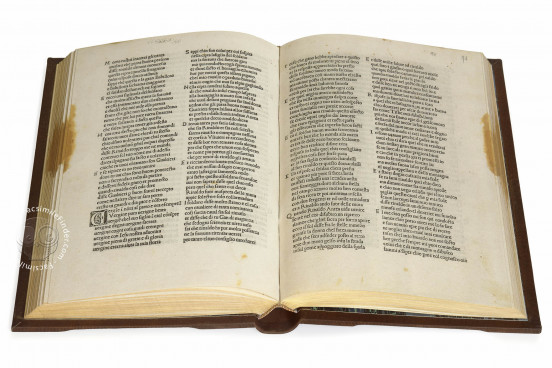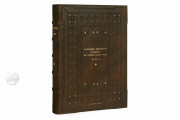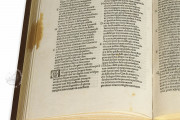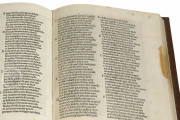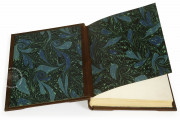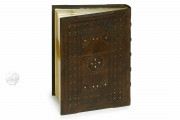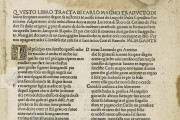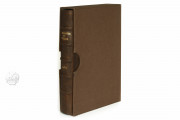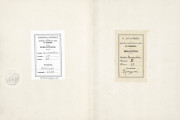The incunable of Luigi Pulci’s Morgante is a superb example of burlesque epic from the Italian production. Also known as Morgante Maggiore (Greater Morgante, from Italian), the work was published in the last quarter of the 15th century, and it features a comic composition, with numerous dramatic turns of events, characterized by sharp and witty burlesque creativity.
The Morgante Maggiore is so called to distinguish it from an earlier version, produced in 1478, by the title of Morgante, of which, unfortunately, no copies are known to survive.
Morgante’s burlesque take on the Carolingian Cycle
The work is based on the Carolingian cycle, also known as the Matter of France, which is a literary current related to Charlemagne and his associates, and it tells the story of two of his most famous paladins, namely Orlando and Renaud de Montauban.
The title of the work takes its name after one of the characters, the giant Morgante, who prevented from attacking the monastery of Chiaromonte by Orlando, is then converted, by the knight, to Christianity. Having become a loyal friend of Orlando, Morgante follows him in several strange and burlesque adventures until he gets killed by a crab’s bite.
The language of the poem reflects its varied contents, ranging from vernacular to the use of a high or scientific register. The structure of the poem is not regular, as it appears more as a collection of chaotic and random thoughts rather than a linear plot.
Literary models of the Morgante
The poem, ending with the death of the paladin Orlando at Roncesvalles, is composed of two parts: the first, which echoes a composition of the cycle of the chanson de Roland, preserved in the Ms. Mediceo Palatino 78 in the Biblioteca Laurenziana of Florence; and the second, based on La Spagna, a poem dated to the 14th century and written by Florentine Sostegno di Zanobi.
Commissioner of Luigi Pulci’s Morgante
Luigi Pulci was court poet to Lorenzo de' Medici, serving him also as a diplomat. So due to his connections with the de Medici family, it is unsurprising that the commissioner of the work was Lucrezia Tornabuoni.
Mother of Lorenzo de’ Medici, she entrusted Pulci with the task of creating a poem of chivalry, in line with the tendency of ri-feudalization present at the time in Florence. The author, however, soon drops the original epic aim, exchanging it with a parody of the epic poem.
We have 1 facsimile edition of the manuscript "Morgante by Luigi Pulci": Il Morgante di Luigi Pulci facsimile edition, published by Il Bulino, edizioni d'arte, 2016
Request Info / Price
